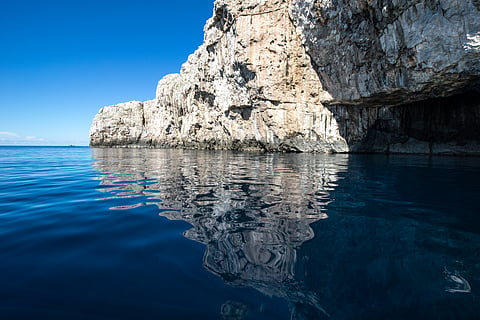

The General Fisheries Commission for the Mediterranean (GFCM) has been working side by side with Albania.
The General Fisheries Commission for the Mediterranean (GFCM), which operates under the UN Food and Agriculture Organization (FAO), will implement this month the 17 decisions adopted regarding the conservation and sustainable management of marine resources in the Mediterranean and the Black Sea.
Among these measures, those related to the Adriatic Sea stand out, including annual catch limits for small pelagics, the creation of a new fisheries restricted area, and the strengthening of the management of key demersal species.
Through scientific research and stock assessments, the adoption of multi-annual management plans, and the establishment of Fisheries Restricted Areas (FRAs), the GFCM supports the efficient management of fisheries in the Adriatic.
Back in 2013, the GFCM adopted the first plan that covered annual catch limits for European anchovy and sardine, fisheries that are fundamental to the Adriatic's industry and ecosystem. Now, the criteria for setting these limits are based on harvest control rules.
"This new approach to management is a step in the right direction towards ensuring healthy fish stocks, preventing overfishing, and ensuring that fisheries can continue to provide sustainable catches over the long term," said Marin Mihanovic, GFCM Fishery Officer and Subregional Coordinator for the Adriatic Sea.
A new FRA also comes into force in the Otranto Channel, in the southern Adriatic, between Albania and Italy. This FRA is the third in the Adriatic Sea after the Bari Canyon and the Jabuka Pomo Pit.
In this way, vulnerable marine ecosystems formed by bamboo corals are protected, and the productivity of living marine resources is increased through the protection of essential fish habitats, such as those of deep-water shrimp, European hake, and Norway lobster.
The effectiveness of the measures implemented by the GFCM has been demonstrated, for example, by the improvement in the biomass of the five stocks. Additionally, the stocks of red mullet, deep-water shrimp, and common sole have reached sustainable levels of exploitation.
With climate change in the spotlight
According to the FAO, the consequences of climate change in the Adriatic are particularly noticeable as it is a shallow, semi-enclosed sea. Thanks to the financial support of the European Union and the support provided by the Global Environment Facility, the GFCM actively supports the sustainable development of aquaculture in this region of the world.
Working side by side with Albania, allocated zones for aquaculture (AZAs) for finfish and shellfish have been established, with efforts focused on ensuring the sustainable development of aquaculture in line with the FAO’s ecosystem-based approach and the Blue Transformation Roadmap.
Finally, the UN-affiliated organization is in contact with local scientific organizations and producers in Croatia to assess the consequences and explore possible adaptation measures.
